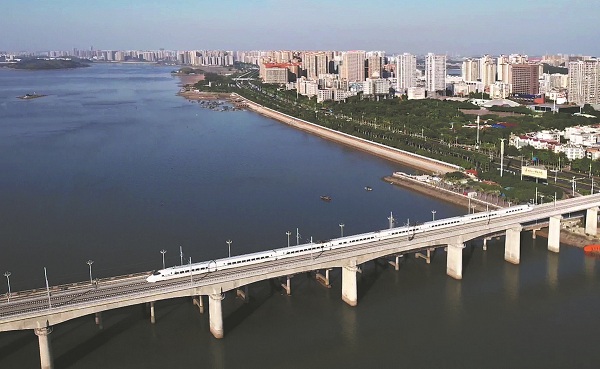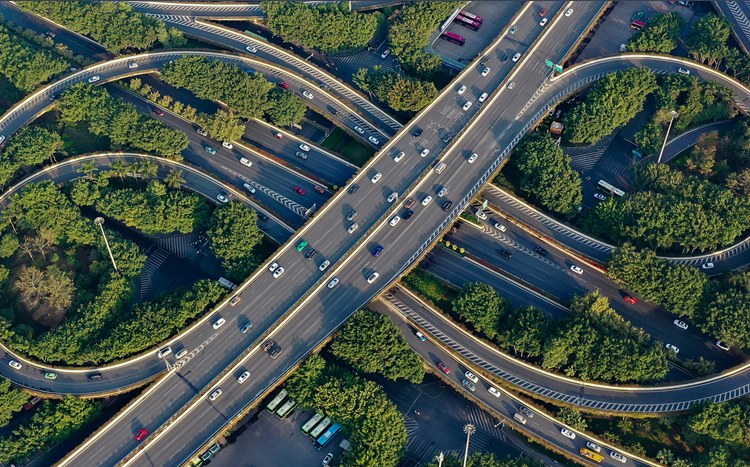Guangxi looks to improve biz climate for economic growth

A high-speed train crosses a bridge of the Fangchenggang-Dongxing Railway in the Guangxi Zhuang autonomous region. [Photo provided to China Daily]
The Guangxi Zhuang autonomous region aims to continuously open up to both the domestic as well as international markets and further help business entities at home and abroad, said Liu Ning, Party secretary of Guangxi.
As an important coastal hinterland linking the Guangdong-Hong Kong-Macao Greater Bay Area and ASEAN region, Guangxi is a window for opening-up and has favorable conditions to build bridges among various regions, Liu said at a meeting held on Monday.
If Guangxi wants to achieve major developments and breakthroughs, it must greatly improve its business environment and make it easier to do business in the region, Liu said.
For Guangxi to build itself into a place with easy access to both the domestic and international markets, the region must follow international high-standard economic and trade rules, and further facilitate investment, trade, consumption, capital flow, people-to-people exchanges and logistics, he said.
Guangxi has been making efforts to build the required infrastructure for linking the region with the Guangdong-Hong Kong-Macao Greater Bay Area and ASEAN region.
More than 3,000 construction workers have not even taken time off during the Spring Festival holiday so as to build the Pinglu Canal, a flagship project on the New International Land-Sea Trade Corridor.
The corridor stretches from the Xijin reservoir in the city of Hengzhou to Qinzhou port in the south of Guangxi, where ships can reach the Beibu Gulf via the Qinjiang River, opening a shorter route to the sea for Guangxi and other regions in Southwest China.
Total trade between Guangxi and other Regional Comprehensive Economic Partnership member countries reached more than 390 billion yuan ($54 billion) in 2023, up 23.7 percent year-on-year, according to local government data.
Meanwhile, a total of 117 freight trains have traveled between China and Vietnam via Guangxi in 2023.
Zou Zhanye, head of the Guangxi industrial park reform and development office, said the region is building a more effective service platform for enterprises to make it easier for them to invest and do business in the parks.
A total of 215 industrial parks started construction recently, with total investment reaching almost 158.3 billion yuan, according to local government statistics.
Hou Gang, mayor of Nanning, said the city has improved mechanisms to swiftly handle inquiries and requests from enterprises. The city wants to enhance its business environment to attract more enterprises to set up offices, he said.
Liu Tao, general manager of Huawei Guangxi Corp, said the company aims to make full use of its strength in 5G, artificial intelligence and cloud computing to contribute to the building of the China-ASEAN AI computing center.














